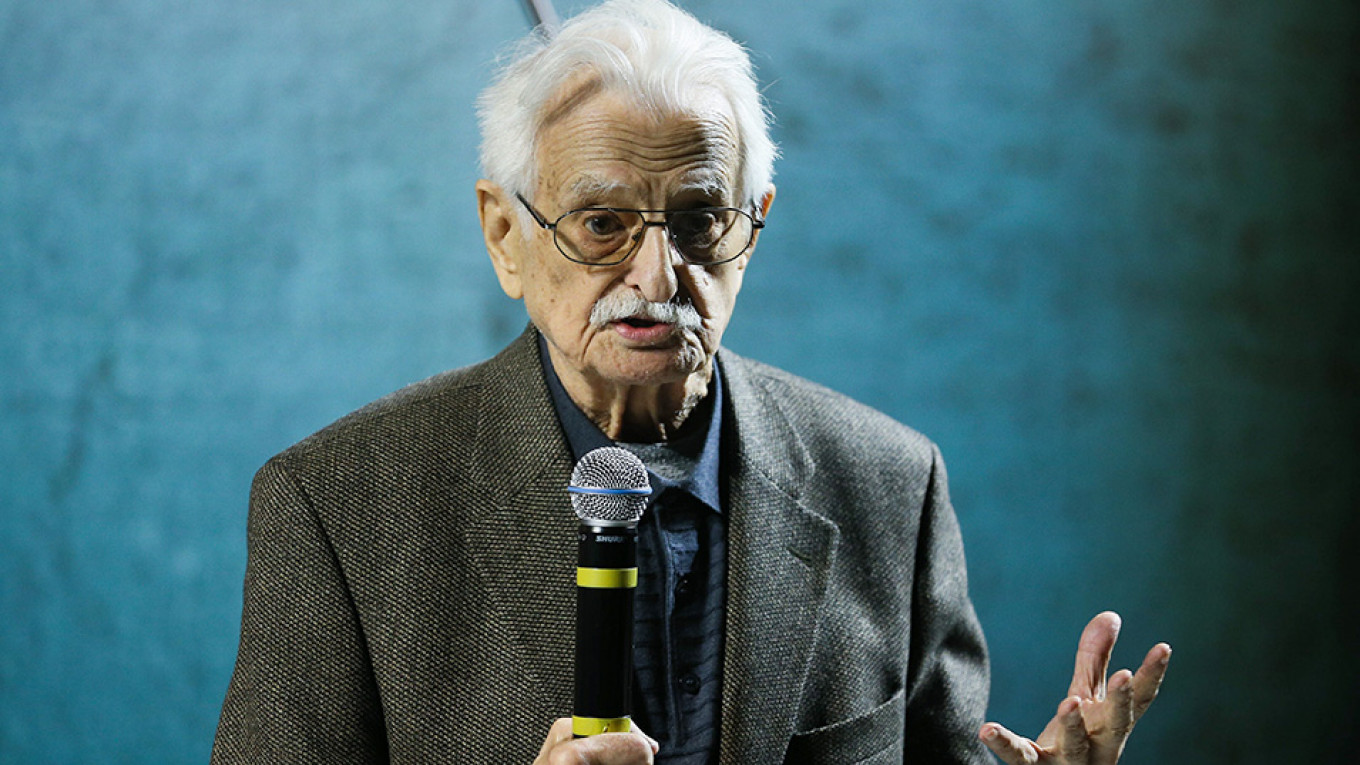Marlen Khutsiev, one of the Soviet Union and Russia’s most innovative and beloved film directors, died on Tuesday morning at the age of 93.
Khutsiev was born in Tiflis (now Tbilisi, Georgia) in 1925. His father (ne Khutishvili) was a communist with a pre-Revolutionary socialist pedigree, who, after serving in high positions within the Soviet government, was executed in 1937 for counter-revolutionary activities. His mother was an actress from a noble Georgian family. Khutsiev’s first name “Marlen” was formed from the names Marx and Lenin.
After graduating from film school in Moscow, Khutsiev worked as a director at the Odessa Studio. He later moved to Moscow and worked at Gorky Studios and then Mosfilm.
Khutsiev is almost synonymous with the Thaw, the short period of artistic and civic freedoms after the death of Josef Stalin in 1953. His first film, with Feliks Mironer, was “Spring on Zarechnaya Ulitsa” (1956), a story about a young teacher sent to a small town after graduation and her ambiguous relationship with one of her students in an adult education class. The student is a “shock worker” at the local factory, a joker with an easy way with women. The story doesn’t follow Soviet plotlines: the well-educated woman from the big city doesn’t immediately fall in love with the crude but charming and industrious worker — although the film does end on an ambiguous note, literally an ellipsis on the screen. The film was one of the most popular movies of the era, seen by over 30 million viewers.
Khutsiev’s next film, “Two Fyodors,” was about the post-war period, when a returning soldier adopts an orphan (both named Fyodor), but their relationship is almost destroyed when he gets married.
This was followed by “Ilych’s Gate,” a film so fiercely criticized by the country’s primary movie-goer, Communist Party General Secretary Nikita Khrushchev, that it was pulled and thoroughly edited before being released as “I’m Twenty Years Old” two years later. The original version was only reconstructed and shown in 1988, during the glasnost era. The film, which shows young people at loose ends personally or professionally and not filled with socialist fervor, is especially noteworthy for the scenes of poets reciting their verse at the Polytechnic Museum: Andrei Voznesensky, Bella Akhmadulina, Yevgeny Yevtushenko, Bulat Okudzhava and others.
Khustiev’s other film of that era, “July Rain,” is shot in the same manner, similar to the European New Wave, with documentary footage, some non-professional actors, and an understated, meandering plot.
His films not only defined the era of the Thaw — and provided some of the most iconic images of that period — their unobtrusive plotlines and ambiguity served as an inspiration for generations of filmmakers who followed.
Until the end of his life, Khutsiev continued to make films, both feature and documentary, while also teaching at the country’s main film school and occasionally acting.
His last film, “Not Yet Evening,” about a meeting between writers of different generations, Leo Tolstoy and Anton Chekhov, is said to have been completed before his death.
Khutsiev was awarded dozens of Soviet, Russian and international prizes for his films and contribution to cinematography.
Marlen Khutsiev will be buried in Novodevichy Cemetery on Thursday, after a ceremony at the Central House of Cinematography.
A Message from The Moscow Times:
Dear readers,
We are facing unprecedented challenges. Russia's Prosecutor General's Office has designated The Moscow Times as an "undesirable" organization, criminalizing our work and putting our staff at risk of prosecution. This follows our earlier unjust labeling as a "foreign agent."
These actions are direct attempts to silence independent journalism in Russia. The authorities claim our work "discredits the decisions of the Russian leadership." We see things differently: we strive to provide accurate, unbiased reporting on Russia.
We, the journalists of The Moscow Times, refuse to be silenced. But to continue our work, we need your help.
Your support, no matter how small, makes a world of difference. If you can, please support us monthly starting from just $2. It's quick to set up, and every contribution makes a significant impact.
By supporting The Moscow Times, you're defending open, independent journalism in the face of repression. Thank you for standing with us.
Remind me later.







